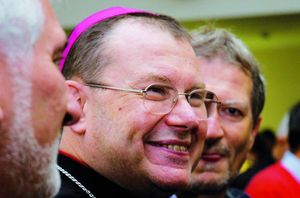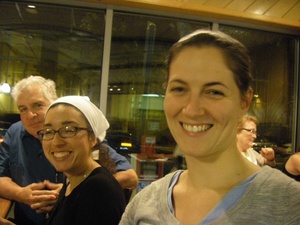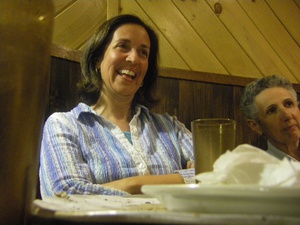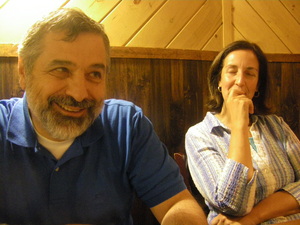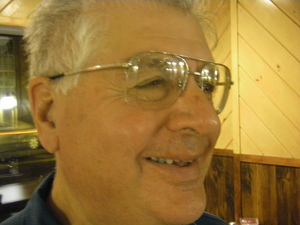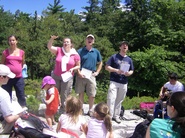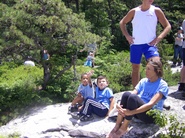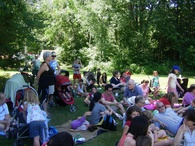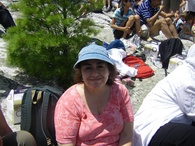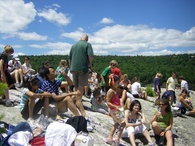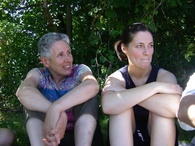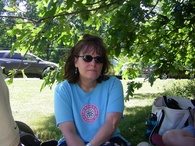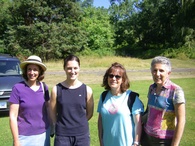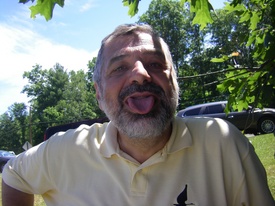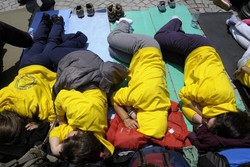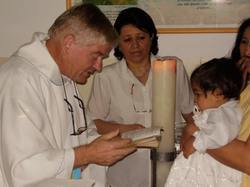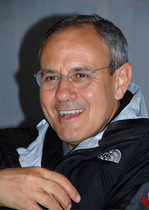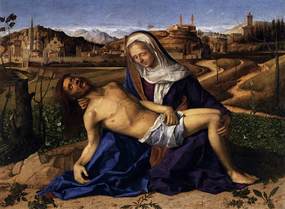 Manuela Camagni, 56, a member of the Memores Domini (the lay consecrated group of Communion and Liberation), died earlier today as a result of injuries sustained in a car accident Tuesday evening in Rome. She was taken to Rome’s Umberto I Polyclinic for treatment and latter died. Manuela served in the Apostolic Household helping to care for the temporal needs of Pope Benedict XVI. She worked closely with Monsignors Georg Gaenswain and Alfred Xuereb, the two personal secretaries of the Pope. Manuela, with the three other Memores Domini, are among the closest collaborators, “the family” of His Holiness.
Manuela Camagni, 56, a member of the Memores Domini (the lay consecrated group of Communion and Liberation), died earlier today as a result of injuries sustained in a car accident Tuesday evening in Rome. She was taken to Rome’s Umberto I Polyclinic for treatment and latter died. Manuela served in the Apostolic Household helping to care for the temporal needs of Pope Benedict XVI. She worked closely with Monsignors Georg Gaenswain and Alfred Xuereb, the two personal secretaries of the Pope. Manuela, with the three other Memores Domini, are among the closest collaborators, “the family” of His Holiness.
Category: Communion & Liberation
Faith in Russia Today: Archbishop Paolo Pezzi in conversation
Crossroads Cultural Center
p r e s e n t s
FAITH IN RUSSIA TODAY
A Conversation with
the Most Reverend Paolo Pezzi, FSCB
Archbishop of Mother of God in Moscow
In cooperation
with Radius, and Communion and Liberation
Date: Wednesday, November 17,
2010
Time: 7:30 pm
Location: Pryzbyla Center, Great
Room
The Catholic University of
America
620 Michigan Ave., NE,
Washington, DC 20064
Metro: Red Line, Brookland/CUA
The conference is free and
open to the public
Paolo Pezzi in DC.pdf
Communion & Liberation sponsors discussion on peace in the Middle East
The Fraternity of Communion and Liberation sponsored a forum in which the Patriarchs of the Eastern Churches attended and spoke about matter pertaining to peace-building in the Middle East. Notable in attendance were the Mayor of Rome and Italy’s Minister of Foreign Affairs. Patriarch Gregory of the Melkites, one of the most out-spoken Catholic patriarchs, said that if the international community could create the State of Israel it should also work for peace there. The conflicts in Israel and Palestine are destroying the fabric of peace, culture and family. Freedoms are of religion and conscience are not universally respected in all the countries of the Middle East. It was noted that Saudi Arabia gives no freedom of worship and conscience to their inhabitants.
Health Care Reform: What is it all about? –a Crossroads Cultural Center presentation
 Each year, the lay ecclesial movement, Communion and Liberation (CL) in NY suggests a particular Crossroads Cultural Center (NYC) event that has a particular significance, seriousness, and the weight because of its potential impact on our lives.
Each year, the lay ecclesial movement, Communion and Liberation (CL) in NY suggests a particular Crossroads Cultural Center (NYC) event that has a particular significance, seriousness, and the weight because of its potential impact on our lives.
There is one event in the Crossroads program which CL wants to underline and encourage everyone not only to attend but also to put effort into getting the word out among fellow parishioners, co-workers, family, etc.
This year, it is an event, October 13, at 7pm at Columbia University, entitled “Health Care Reform: What is it all about?” Below is an excerpt from the Crossroads website.
The distinguished panel of speakers will help us to understand better what practical consequences we should expect from the new health care law and its implementation. To a large extent, the debate on health care reform has been shaped by “experts,” both from the academic world and from various think-tanks and professional associations. The idea behind this discussion is to ask a group of experienced professionals whose work is related to health care how the new law will concretely impact their work, and the health care system as they know it in their field of action. As a general rule, experience is the best immunization against the temptations of ideology. In the case of health care reform these temptations include both the utopian conviction that this huge social problem can basically be solved by technocratic means (i.e., government action) and the opposite prejudice, namely that nothing good can come from governmental intervention in the health care system as prescribed by the reform. Rather than joining this stale ideological struggle, we want to listen to those who will deal every day with the effects of the reform, as the best to way to learn what we should realistically expect.
The most important thing is that we take this event seriously as a personal invitation to come to know more about something in reality as it’s unfolding now. It’s in reality that the Divine Mystery speaks to us. We cannot simply ignore the questions and problems our society faces and claim to be above them. It’s in facing reality, struggling with it, and involving ourselves with it, that we can come to know Christ more.
The presentation info:
Wednesday, October 13, 2010 at 7 pm
Columbia University, Philosophy Hall 301
1150 Amsterdam Avenue at 116th Street
The flyer for the event is posted here: Health Care Reform.pdf
Communion and Liberation on “Islamophobia and Mother Teresa”
The following flyer is being distributed by the lay ecclesial movement Communion and Liberation this weekend as a humble attempt to understand, in a serious way, what the Ground Zero-Mosque building proposal means in light of our saying we believe that Jesus Christ makes a difference in the way we live and see reality around us, and how He is truly present among us. If we really believe that Christ abides with us, then how do you (we) evaluate value of the current Christian-Muslim-unbeliever tensions? Do we, as believers, assess reality according to the way everyone else does, or do we Christians assess reality in a new way, in the way Christ sees reality?
The proposed construction of an Islamic center and mosque at
Ground Zero has resulted in the outrage of many Americans and the recent public
discussion about “Islamophobia” in America. These events provoke us to affirm
the following:
1. We notice a growing tendency to manipulate circumstances to
serve as a pretext to create a public furor that demands people make a choice
between one of two pre -packaged, ideological positions. We refuse to engage in
a debate about whether or not to build a mosque at Ground Zero. The reality of
Islam in America brings up questions that go much deeper than that of the
construction of one mosque.
Indeed, one critical and open question is how contemporary American
culture comes to grips with the human person’s religious sense.
2. Many of
those among the cultural elite, as well as many who hold the levers of power in
our nation, have abandoned the religious tradition that informed the lives of
the vast majority of their ancestors: Christianity. They have reduced it to a
moral code or a vague myth, linked to a man dead for more than 2,000 years. Instead,
they have embraced a “scientific” outlook on human life. But science provides
no answer to those questions that continuously gnaw at the human heart, such as
the problem of justice, the meaning of human life, or the problems of suffering
and evil. In fact, science tends to stifle them. Hence, contemporary American culture finds itself weak and
tremendously uncertain about any response to universal human inquiries and
longings.
3. Just over two weeks ago, we marked the 100th anniversary of Mother
Teresa of Calcutta’s birth. One who looks at her sees a resplendent human
person, overflowing with love for everyone, especially strangers of different
religions. Her humanity touched all: religious and atheist; Muslim and Hindu;
rich and poor. Mother Teresa’s life invites anyone who seeks truth to open his
or her heart and mind and take a fresh look at Christianity.
4. For serious
Christians, the challenge of Islam, the large-scale abandonment of
Christianity, the emptiness of the dominant culture, and the witness of Mother
Teresa signal the urgent need for conversion. Pope Benedict XVI recently said
that “conversion…is not a mere moral decision that rectifies our conduct
in life, but rather a choice of faith that wholly involves us in close
communion with Jesus as a real and living Person.” The Pope brings us face to face with the defining difference
between Christianity and Islam: one religion bases its response to the human
person’s religious sense upon a message delivered 1,400 years ago, while the
other offers the experience of a Man who died but is alive and present with us
today. As Fr. Juliàn Carròn,
President of the Fraternity of Communion and Liberation, recently affirmed:
Jesus’ message and even all the miracles He performed were not enough to
overcome the sadness of His disciples on the road to Emmaus –only His risen
presence could ignite their hearts once again.
5. We are not Islamophobic, nor
do we fear our post-modern world.
On the contrary, we invite all to look at Mother Teresa and at the Man
to whom she gave her life. In His
Person, present with us today, all can find the Truth that alone will deliver
the freedom America promises.
Communion and Liberation
September 11, 2010
Notes
Benedict XVI, General Audience,
Paul VI Audience Hall, Wednesday, February 17, 2010 (http://www.vatican.va/holy_father/benedict_xvi/audiences/2010/documents/hf_ben-xvi_aud_20100217_en.html)
cfr. Luke 24: 13-35
Here’s the text for easy printing: CL Sept 11, 2010 Flyer.pdf
New Haven’s Communion & Liberation
Crossroads Cultural Center
 There are a few good opportunities to take our lives seriously. One such opportunity is the Crossroads Cultural Center that looks “to offer opportunities for education, making it possible to look with openness, curiosity and critical judgment at every aspect of reality.” Crossroads takes Saint Paul’s exhortation to “test everything; retain what is good” with
There are a few good opportunities to take our lives seriously. One such opportunity is the Crossroads Cultural Center that looks “to offer opportunities for education, making it possible to look with openness, curiosity and critical judgment at every aspect of reality.” Crossroads takes Saint Paul’s exhortation to “test everything; retain what is good” with
Follow the companionship Christ has given
“There are many companionships. I don’t say, “Choose
one,” but follow the one that Christ has put you in, that Christ has had you
meet, the one that first struck you convincingly.”
Giussani, Founder of Communion and Liberation
Communion and Liberation Vacation 2010
Scenes from the 2010 Northeast Coast Communion & Liberation Vacation in the Hudson Valley, outside New Paltz, New York, July 1-5, 2010 … Can anything make life new again?
Priesthood: “First of all, authentically human,” Fr Carron suggests
Father Julián Carrón, published the following commentary on priesthood in the L’Osservatore Romano (June 9, 2010), at conclusion of the Year of Priest.
I will never forget the impact of a question at a spiritual retreat with some priests in Latin America. I had just finished saying that often our faith lacks the human, when a priest approached me and said that when he was in seminary, they taught him that it was better to hide his concrete humanity, not to have it in sight “because it disturbed the journey of faith.” This episode made me more aware of how Christianity can be reduced and of the state of confusion in which we are called to live our priestly vocation. Once someone asked Fr. Giussani his advice for a young priest, “That he be above all a man,” he answered, to the surprise of those present. We find ourselves at the polar opposite of the advice given the seminarian: on the one hand, to look away from one’s humanity, and on the other, a gaze full of fondness for oneself.
So then, what is decisive for our faith and our vocation? What do we need? Fr. Giussani repeatedly indicated that “the forgetfulness of the ‘I’,” the absence of authentic interest for one’s own person is the “supreme obstacle to our human journey” (Alla ricerca del volto umano, Rizzoli, Milano 1995, p. 9). Instead, true love for oneself, true affection for oneself is what leads us to rediscover our constituent exigencies, our original needs in their nakedness and vastness, so as to see ourselves as relationship with the Mystery, entreaty for the
infinite, structural expectant awaiting. Only people so “wounded” by reality, so seriously engaged with their own humanity can open themselves totally to the encounter with the Lord. Fr. Giussani affirms, “In fact, Christ offers Himself as the answer to what “I” am and only an attentive and also tender and passionate awareness of myself can throw me wide open and dispose me to acknowledge, admire, thank, and live Christ. Without this awareness, even that of Jesus Christ becomes a mere name” (At the Origin of the Christian Claim, McGill-Queen’s University Press, Montreal 1998, p. 4).
“There is no response more absurd than that to a question one hasn’t asked” wrote Reinhold Niebuhr. This also applies to us when we uncritically submit to the influence of the culture in which we are immersed, which seems to favor the reduction of humanity to our biological, psychological and sociological antecedents. But if humanity is truly reduced to this, what is our task as priests? What use are we? What is the sense of our vocation? How can we resist a flight from reality, taking refuge in spiritualism or formalism, seeking alternatives that make life bearable? Or wouldn’t it be better, obeying the cultural climate, to become social assistants, psychologists, cultural operators or politicians? As Benedict XVI reminded us in Lisbon, “Often we are anxiously preoccupied with the social, cultural and political consequences of the faith, taking for granted that faith is present, which unfortunately is less and less realistic. Perhaps we have placed an excessive trust in ecclesial structures and programs, in the distribution of powers and functions; but what will happen if salt loses its flavor?” (Homily at Holy Mass at Terriero do Paco of Lisbon, May 11, 2010).
Therefore, everything depends on the perception, first of all for us, of what humanity is and what truly corresponds to our infinite desire. The decision with which we live our vocation therefore derives from the decision with which we live our being men. Only within an authentically human vibration can we know Christ and let ourselves be fascinated by Him, to the point of giving Him our lives to make Him known to others. “Why does the faith still absolutely have a chance of success?” then Cardinal Ratzinger asked himself, and answered, “I would say because it finds correspondence in the nature of man. […] In man there is an inextinguishable nostalgic aspiration toward the infinite. None of the answers sought is sufficient; only the God who has made Himself finite, to lacerate our finiteness and lead it in the breadth of His infinity, is able to meet the questions of our being. Therefore today as well, Christian faith will return to find humanity” (Fede, Verità, Tolleranza [Faith, Truth, Tolerance] Cantagalli, Siena 2003, pp. 142-143).
This certainty that Benedict XVI testifies to continually even in the face of all the evil we bring upon ourselves or cause others – just think of the pedophilia issue – invites us on a journey to rediscover and deepen our understanding of the reasonableness of the faith: “Our faith is well-founded, but this faith needs to come alive in each of us […]: only Christ can fully satisfy the profound longing of every human heart and give answers to its most pressing questions about suffering, injustice and evil, concerning death and life hereafter” (Homily at Holy Mass at Terriero do Paco di Lisbon, May 11, 2010). Only if we experience the truth of Christ in our life will we have the courage to communicate it and the audacity to challenge the hearts of the people we meet. In this way, the priesthood will continue to be an adventure for each of us and thus the opportunity to testify to our fellow women and men the answer that only Christ is for the “mystery of our being” (G. Leopardi). Thank you.
Father Julián Carrón is a priest of the Archdiocese of Madrid and he is the President of the Fraternity of Communion and Liberation centered in Milan, Italy. He was appointed by Benedict XVI to be among the experts at the Synod of Bishops on the Word of God and he is a consultant on the Pontifical Council of the Laity.

